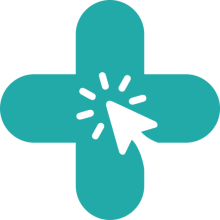Published - Fri, 11 Nov 2022

Alcoholic Ketoacidosis: Clinical Features, Evaluation & Treatment
Alcoholic ketoacidosis is usually seen in alcoholic patients who are forced to abruptly cease drinking alcohol after a drinking binge, but it may also be seen in first-time drinkers. Diabetes mellitus does not exist in these patients.
PATHOGENESIS: The pathogenesis is uncertain. It is related to low insulin levels, reduction of available nicotinamide adenine dinucleotide, and increased ketone formation.
CLINICAL FEATURES
1. Patient history: The patient has recently stopped or limited alcohol consumption because of abdominal pain, nausea, and vomiting, not from a desire to stop drinking.
2. Symptoms
a) Diffuse abdominal pain is typically present. Pancreatitis, gastritis, and hepatitis, for example, are diseases linked to alcoholism that can induce abdominal discomfort. Other conditions unrelated to alcoholism might also produce abdominal pain (e.g., sepsis, pneumonia, pyelonephritis).
b) There may be signs of alcohol withdrawal or delirium tremens.
3. Physical examination findings
a) Hydration status: Dehydration occurs secondary to vomiting, diaphoresis, and decreased oral intake. The patient has tachycardia and hypotension and is critically unwell.
b) Vital signs: Kussmaul respirations may be present, and the temperature may be elevated or normal.
c) The range of mental states includes normal and comatose.
d) Alcoholism stigmata, such as spider angiomata, may be seen.
DIFFERENTIAL DIAGNOSES: An anion gap acidosis-causing condition needs to be ruled out. The most important conditions to take into account include isopropyl alcohol intoxication, hyperemesis gravidarum, hunger, cyanide poisoning, and diabetic ketoacidosis.
EVALUATION
1. Serum biochemical profile will establish the presence of an anion gap acidosis. A mixed disorder could also exist (e.g., metabolic ketoacidosis may occur from vomiting and respiratory alkalosis may occur from fever, sepsis, or alcohol withdrawal).
2. Ketone studies: β-hydroxybutyric acid is the predominant ketone formed in alcoholic ketoacidosis. The nitroprusside test has limited use in individuals with alcoholic ketoacidosis since it only detects acetoacetate and not -hydroxybutyrate. Acetoacetate levels rise during treatment, giving the ketoacidosis a fictitious appearance of deteriorating.
3. Bedside glucose determination: The level of blood sugar may be low, normal, or only slightly higher. Most individuals' blood glucose levels range from normal to elevated.
THERAPY: Ketoacidosis can be reversed in 12 to 18 hours.
1. Dehydration is treated with saline solutions containing glucose and thiamine. The clinical response appears to be enhanced by glucose. If inadequate oral intake is suspected, magnesium and vitamin supplements should be administered.
2. Insulin: Administration of insulin is not indicated unless the patient has concomitant diabetes mellitus.
3. Bicarbonate: Bicarbonate administration is under question. Most people recommend only giving bicarbonate in cases of cardiac arrest with known severe acidosis.
DISPOSITION
1. Admission: Patients with severe metabolic acidosis or those who are unable to tolerate oral fluids should be hospitalised. Prior to discharge, underlying or precipitating illnesses, as well as abdominal pain, must be assessed. Patients often react to therapy in 12 to 24 hours, at which point they may be released.
2. Discharge: The patient might be released from the emergency room if the therapy goes well. It is crucial to closely monitor patients and refer them for alcoholism treatment.
Created by
Rigomo Team
Rigomo is a leading online education platform that offers a wide range of courses to help individuals enhance their skills and achieve their career goals. With our user-friendly interface and expert instructors, we strive to provide high-quality education to everyone, anytime and anywhere. Join us today and take the first step towards a brighter future.
Rigomo is an e-learning platform that was founded in 2019 by a team of dedicated professionals with a passion for revolutionizing the way people learn. The platform offers a range of online courses that cover various industries, including business, technology, healthcare, and more.
Rigomo's courses are designed to be interactive and engaging, with a focus on practical skills that learners can apply in their careers. The platform uses a combination of video lectures, quizzes, and hands-on projects to help learners master the subject matter.
Rigomo is committed to providing affordable and accessible education to people around the world. The platform offers a range of pricing options, including monthly and annual subscriptions, as well as pay-as-you-go options for individual courses.
Since its launch, Rigomo has received numerous accolades for its innovative approach to e-learning. The platform has helped thousands of learners across the globe acquire new skills and advance their careers.
As Rigomo continues to grow, the team remains committed to providing high-quality education that is accessible to all. The platform is constantly updating its courses and features to ensure that learners have access to the latest tools and technologies.
Comments (0)
Search
Popular categories
Health and Wellness
231Skill Development
7Technology
5Community Impact
2Success story
2Creativity
1Latest blogs

DeepSchool: The Story of an Idea That Refused to Sit Still
Tue, 02 Dec 2025

Transforming Emergency Care: The Story Behind Rigomo's Revolutionary PPMMP Course
Sun, 12 May 2024

Empowering Rural Healthcare: How Pogiko's AI is Bridging the Gap in Medical Services
Thu, 25 Apr 2024

Write a public review